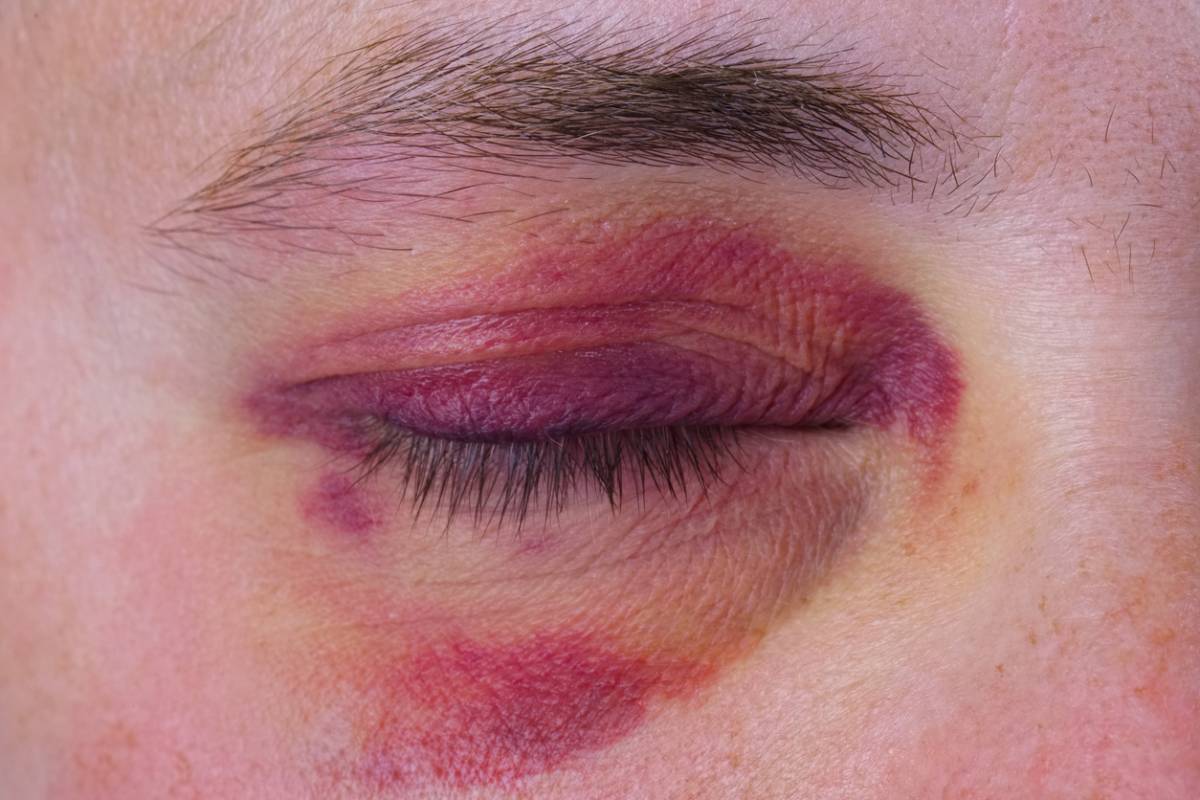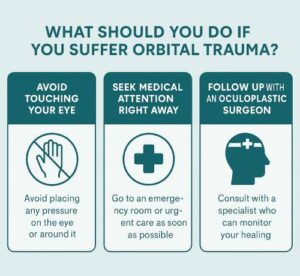Injury or trauma to the eye is a serious matter. It can be extremely scary, but it is essential to stay calm. Trauma to the eye is referred to as orbital trauma. It can occur for various reasons, including accidents, sports injuries, or even physical confrontations. The bone that protects and surrounds the eyes is referred to as the orbit. Trauma or injury to the orbital bone can impact your vision and eye movement. It can also impact the appearance of your eye, depending on the severity of the damage. Prompt care is crucial to preventing long-term damage to your vision. So, what should you do if you suffer orbital trauma? Consider the following information so you are fully prepared in the event of an injury or accident.
What Should You Do If You Suffer Orbital Trauma?
If you suffer an injury to the eye or the bones around it, you should consult with an oculoplastic surgeon as soon as possible. Orbital trauma treatment is necessary after the injury is diagnosed. This is the case even if the injury is small and does not cause you pain. There may be serious damage to the internal structures of the eye. Consider the following steps if you experience an eye injury.
Avoid Touching Your Eye
You may be tempted to touch the eye after an injury. However, you should avoid this. Touching your eye if it has an open wound can increase the risk of infection. Additionally, applying pressure to an eye injury can exacerbate the condition. This is especially true if the orbital bone is broken. Avoid touching the injury and seek medical help immediately.
Seek Medical Attention Right Away
Early intervention is critical when it comes to eye injuries. Depending on the severity of the injury, head to the emergency room or urgent care right away. Common symptoms after an eye injury include severe pain, swelling, bleeding, and vision changes. These are all signs of serious trauma. In many cases, imaging is necessary to determine the full extent of the injury.
Follow Up With An Oculoplastic Surgeon
Once you are stable, it is important to consult with an oculoplastic surgeon. Oculoplastic surgeons specialize in treating the eyes and surrounding areas. They are skilled and experienced in addressing the appearance and function of the eyes and their surrounding structures. It is important to have the damage assessed after the injury or trauma. The oculoplastic surgeon can monitor your healing and provide treatment if necessary. In some cases, surgery may be necessary to prevent long-term issues.
Symptoms of Orbital Injury
Eye injuries vary significantly due to the complexity of the structures surrounding the eyes. Some injuries may cause mild discomfort. However, others may be serious enough to cause long-term damage. Receiving prompt treatment is essential to prevent future serious issues. Several signs of orbital injury indicate the need for an oculoplastic surgeon. If you experience any of the following symptoms, seek treatment immediately.
Double Vision
Double vision is characterized by seeing two images instead of one. This can occur after trauma or injury to the eyes. Double vision is often a sign that the muscles that control eye movement are damaged. They may also be trapped in a broken bone.
Swelling or Bruising
Severe swelling or bruising is a cause for concern. Injury or trauma to the eye often results in a black eye. However, extreme swelling that is rapid or continues to get worse is a serious sign. It can indicate bleeding behind the eye. This is referred to as orbital hemorrhage and is a serious medical emergency.
Facial Numbness
Numbness around the cheek or forehead after trauma to the eye is a cause for concern. This occurs when the nerve in the orbit is pinched or damaged. A pinched nerve is often due to a fracture in the orbital bone.
Bulging or Sunken Eyes
Injury or trauma that causes the eyes to bulge or become sunken in is a cause for concern. It generally indicates that the fat or muscles around the eyeball have shifted. It can also be a sign that the eyeball itself has shifted.
How an Oculoplastic Surgeon Can Help
An oculoplastic surgeon specializes in treating the delicate structure of the eyes. They are skilled and experienced in treating the bones, muscles, and nerves that make up the eyes and their surrounding structures. If you experience injury or trauma to the eye, contact the team at IDO Institute of Dermatology & Oculoplastic Surgery today to schedule a consultation!


